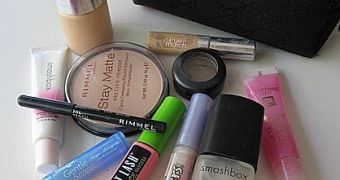When the going gets tough, women get prettier – this is how one might adapt the old saying. A new poll conducted by women’s cosmetics company Avon in the UK comes to show that, despite the fact that recession is still in full swing and has yet to show significant signs of abating, women still shed on cosmetic products, in what is believed to be their attempt at fighting off the blues, as the Daily Mail explains.
The beauty industry is a segment that, although initially believed to be on the verge of taking a major hit during the financial downturn, has continued to flourish against all odds. It is currently a £1.1 billion industry, so perhaps Avon’s latest findings that women are spending even more now than they did, say, a year or more ago should not be entirely surprising. As we also noted in previous articles, it is believed that paying more attention to one’s looks (thus, spending more on beauty treatments) is women’s way of fighting the blues of struggling financially.
Of the 1,000 women queried, 62 percent consider mascara essential, therefore it will always be found in their makeup bags, 38 percent couldn’t live without lipstick, while 37 percent would not part with foundation for dear life. The findings of the poll also revealed that women tend to pay increased attention to their appearance (thus their expenditure increases) between the ages of 25 and 34, when their makeup bags include an average of £71 worth of cosmetics. At the opposite pole are women aged 16-24, who carry £69 worth of makeup.
“Many people buy luxuries in a time like this to make them feel better – whether that is chocolate or makeup. Women who feel low want to look better – they go for a haircut, have their nails done or buy new makeup. It’s a common phenomenon. It may make them feel better at the time but it’s what psychologists call a temporary palliative. It doesn’t solve the problem but helps them to feel better in the short term.” Cary Cooper, professor of psychology and health at Lancaster University, tells the Mail.
And it’s not just makeup that makes women feel better during these critical times, as we also noted on previous occasions. A considerable boost in sales of hair dye – to the detriment of visits to the salon – has also been noted in recent months, while another study established not long ago that, no matter whether they had the money or not, women would shop more in recession.

 14 DAY TRIAL //
14 DAY TRIAL //